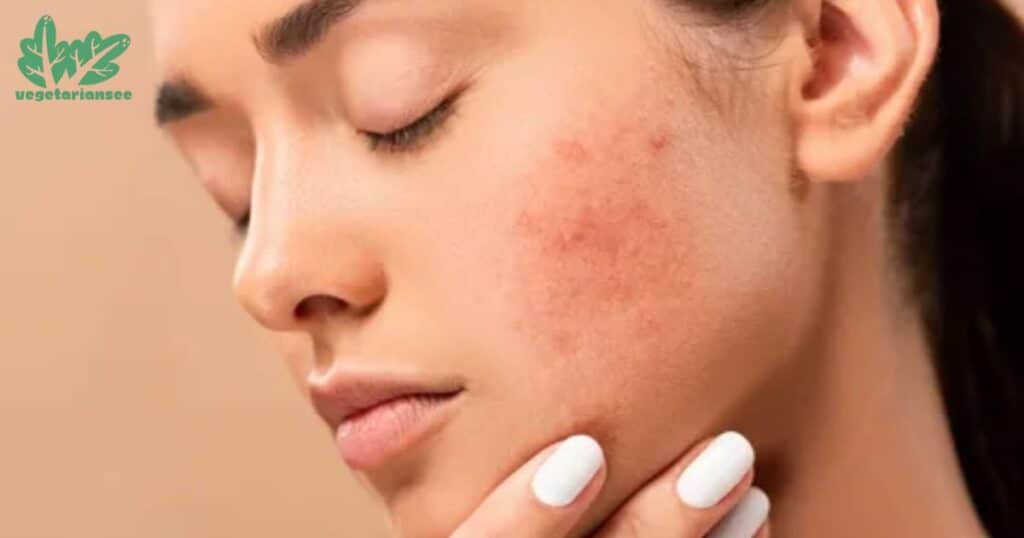Allergic to bamboo sheets means having adverse reactions like itching or redness when using them. This can happen due to chemicals used in processing, dyes or individual sensitivity. If experiencing symptoms consult a healthcare professional and consider alternatives like organic or Oeko-Tex certified sheets.
Discovering you are Allergic to Bamboo Sheets can be surprising. While bamboo sheets are praised for being hypoallergenic some may experience itching or redness. This reaction may stem from processing chemicals or individual sensitivity. If discomfort arises consulting a professional and exploring alternative bedding options is key.
Experiencing an allergic reaction to bamboo sheets can be unexpected. Despite their reputation for hypoallergenic properties some individuals may develop skin irritations. This could be due to processing chemicals or personal sensitivities. If discomfort persists its advisable to consult with a healthcare professional and consider alternative bedding options.
Can You Be Allergic to Your Bed Sheets?
Discovering you are allergic to your bed sheets might seem surprising but its possible. Some bedding materials, like certain synthetic fabrics or processed natural fibers, can trigger allergic reactions, including dust mites mold or residual chemicals from manufacturing. If you notice itching, redness or other discomfort, it could be worth investigating the materials used in your sheets.
Opting for hypoallergenic sheets washing your bedding regularly and choosing materials carefully such as being mindful of keywords like Allergic To Bamboo Sheets can help minimize the risk of allergic reactions and ensure a more comfortable sleep environment.
What are the Causes of your Indoor Allergies?

Indoor allergies can stem from various sources with bedding materials being one potential culprit. Discovering the causes of your indoor allergies is crucial for managing symptoms effectively. If you find yourself allergic to your bed sheets such as Allergic To Bamboo Sheets it could be due to the materials used such as synthetic fabrics or chemicals in the manufacturing process.
Other common indoor allergens include dust mites pet dander mold and pollen tracked indoors. Regular cleaning, proper ventilation and choosing hypoallergenic materials for your bedding can all contribute to creating a more allergen-free indoor environment. Identifying and addressing these causes can significantly improve your indoor air quality and overall well-being.
Can I Be Allergic to Bamboo Sheets?
Being allergic to bamboo sheets is possible despite their reputation for hypoallergenic properties. Individuals may experience reactions due to processing chemicals, dyes or personal sensitivities to bamboo itself. If you notice itching or redness its advisable to consult a healthcare professional and consider alternatives like organic or Oeko-Tex certified bamboo sheets.
Checking the product label for information on manufacturing processes opting for chemical-free and organic options and washing the sheets before use can help mitigate allergic reactions. Understanding the potential sources of allergies in bamboo sheets and taking appropriate steps can ensure a more comfortable and allergen-free sleep environment.
How Does Bamboo Sheets Prevent Allergies?

Bamboo sheets are renowned for their hypoallergenic properties often preventing allergies for many users such as those who are Allergic To Bamboo Sheets. The natural properties of bamboo including its resistance to dust mites and mold contribute to a reduced risk of allergens in the bedding.
Choosing organic or Oeko-Tex certified bamboo sheets ensures minimal exposure to processing chemicals. The breathability and moisture-wicking abilities of bamboo fabric create an environment less favorable for allergens like dust mites.
By selecting high-quality bamboo sheets and following proper care instructions individuals can enjoy a comfortable and allergy-resistant sleep experience making bamboo sheets a popular choice for those with sensitivities.
Why Bamboo Sheets Are Good News For Allergy Sufferers?
Bamboo sheets bring good news to allergy sufferers due to their inherent hypoallergenic qualities. The natural resistance of bamboo to dust mites and mold minimizes potential triggers for allergies.
Choosing organic or Oeko-Tex certified bamboo sheets ensures a cleaner and chemical-free sleep environment. The breathability of bamboo fabric along with its moisture-wicking properties creates an inhospitable environment for common allergens.
These features combined with proper care make bamboo sheets an excellent choice for allergy sufferers seeking a comfortable and allergen-resistant bedding option. If you happen to be allergic to bamboo sheets, its important to consider alternative bedding options that better suit your needs.
How Bamboo Sheets Beat Cotton & Other Fabrics in Allergy Relief?
Bamboo sheets outshine cotton and other fabrics when it comes to allergy relief especially for those who are Allergic To Bamboo Sheets. Unlike cotton, bamboo possesses natural resistance to dust mites and mold providing a safer option for those prone to allergies. The choice of organic or Oeko-Tex certified bamboo sheets further ensures a chemical-free bedding experience in contrast to certain processed cotton materials.
The breathability and moisture-wicking properties of bamboo surpass traditional fabrics creating an environment that is less conducive to allergen growth. Allergy sufferers often find relief with bamboo sheets as they not only offer comfort but also contribute to a healthier sleep space by minimizing potential triggers.
Benefits of Sleeping on Bamboo Sheets to Reduce Allergy Symptoms

Sleeping on bamboo sheets offers numerous benefits for reducing allergy symptoms. The natural hypoallergenic properties of bamboo resistant to dust mites and mold create a healthier sleeping environment. For allergy sufferers this can lead to a decrease in common triggers that may cause discomfort.
The breathability and moisture-wicking abilities of bamboo sheets contribute to a more comfortable and allergen-resistant sleep experience. Opting for organic or Oeko-Tex certified bamboo sheets ensures a cleaner and chemical-free bedding option promoting better sleep for individuals prone to allergies.
Tips on Finding the Right Bamboo Sheet Set for Your Bed
Check for Certifications: Look for organic or Oeko-Tex certified bamboo sheets, especially if you are Allergic To Bamboo Sheets, to ensure they are free from harmful chemicals.
Investigate Manufacturing Processes: Understand the processing methods to avoid potential allergens from chemicals or dyes.
Opt for High-Quality Bamboo: Choose reputable brands and high-quality bamboo fabric especially if you are Allergic To Bamboo Sheets, to maximize hypoallergenic benefits.
Read Product Labels: Check the product labels for information on materials, ensuring they meet your allergy-sensitive requirements.
Prioritize Breathability: Select bamboo sheets known for breathability and moisture-wicking properties to reduce the risk of dust mites.
Wash Before Use: Wash the sheets before using them, especially if you are Allergic To Bamboo Sheets to remove any residual chemicals and enhance comfort.
Consider Personal Sensitivities: Be mindful of individual sensitivities to bamboo or specific materials when making your selection.
Follow Care Instructions: Adhere to proper care instructions to maintain the hypoallergenic qualities of the bamboo sheets.
Advantages of Bamboo Sheets Beyond Allergy Relief
Beyond providing allergy relief bamboo sheets offer a host of additional advantages. Their soft and luxurious feel enhances the overall comfort of your sleep promoting relaxation. The breathable nature of bamboo fabric helps regulate temperature ensuring a cool and comfortable sleeping environment especially during warmer seasons.
Bamboo sheets are environmentally friendly and sustainable contributing to a greener lifestyle. Their durability and resistance to wrinkles make them a practical and long-lasting bedding choice. Easy to care for and available in various styles bamboo sheets not only address allergy concerns but also provide a luxurious and eco-conscious option for a restful nights sleep.
Can bamboo sheets help with other skin conditions like eczema?

Bamboo sheets may offer relief for individuals with skin conditions like eczema due to their hypoallergenic properties. The natural resistance to dust mites and mold can reduce potential irritants that may exacerbate eczema symptoms. Choosing organic or Oeko-Tex certified bamboo sheets further ensures a chemical-free and gentle surface minimizing the risk of skin reactions.
The soft and smooth texture of bamboo fabric can be soothing for sensitive skin providing comfort to those dealing with eczema. While individual responses may vary the breathable and moisture-wicking qualities of bamboo sheets may contribute to a more comfortable sleep environment potentially offering relief for individuals with skin conditions.
Advantages Of Bamboo Sheets For Sensitive Skin & Allergies
Hypoallergenic Properties: Bamboo sheets are naturally hypoallergenic making them suitable for individuals with allergies and sensitive skin.
Chemical-Free Options: Opt for organic or Oeko-Tex certified bamboo sheets to ensure they are free from harmful chemicals.
Soft and Gentle: The soft and smooth texture of bamboo fabric is gentle on sensitive skin providing comfort for those with skin conditions like eczema.
Breathable and Moisture-Wicking: Bamboo sheets offer breathability and moisture-wicking properties, creating a comfortable sleep environment.
Temperature Regulation: The natural temperature-regulating abilities of bamboo fabric contribute to a cool and soothing experience especially during warmer seasons.
Sustainable and Eco-Friendly: Bamboo is a sustainable and eco-friendly material aligning with environmentally conscious choices.
Durable and Long-Lasting: High-quality bamboo sheets are known for their durability ensuring a lasting solution for sensitive skin and allergy concerns.
Can bamboo sheets irritate skin?

While bamboo sheets are generally well-tolerated some individuals may experience skin irritation. This could be attributed to processing chemicals or dyes used during manufacturing. To minimize the risk of skin irritation opt for organic or Oeko-Tex certified bamboo sheets ensuring they are free from harmful substances.
It’s essential to check product labels choose high-quality bamboo sheets and wash them before use to remove any residual chemicals. While bamboo is often praised for its soft and gentle nature personal sensitivities can vary so paying attention to your skins response and considering hypoallergenic alternatives may be necessary for a comfortable sleep experience.
How do I know if I am allergic to my sheets?
If you suspect you are allergic to your sheets watch for common signs such as itching redness or skin irritation. These symptoms may indicate a reaction to processing chemicals, dyes or specific materials in the sheets. Consulting a healthcare professional can help confirm the cause of your discomfort.
To pinpoint potential allergens check the product labels for information on manufacturing processes and materials. Washing your sheets before use and opting for hypoallergenic options, like organic or Oeko-Tex certified sheets can also contribute to a more comfortable sleep environment for individuals with sensitivities.
Can You Be Allergic to Bamboo Pillows?
Discovering you are allergic to your bed sheets might seem surprising, but its possible. Some bedding materials, like certain synthetic fabrics or processed natural fibers, can trigger allergic reactions including dust mites, mold or residual chemicals from manufacturing. If you notice itching, redness or other discomfort, it could be worth investigating the materials used in your sheets.
Opting for hypoallergenic sheets washing your bedding regularly and choosing materials carefully, such as being mindful of keywords like Bamboo With A Chainsaw or Allergic To Bamboo Sheets, can help minimize the risk of allergic reactions and ensure a more comfortable sleep environment.
How to Deal With Pillow-Caused Allergic Reactions?
If you are experiencing allergic reactions from your pillow taking specific steps can help alleviate discomfort. Consider switching to hypoallergenic options like bamboo pillows preferably organic or Oeko-Tex certified to reduce the risk of exposure to chemicals. This can be particularly beneficial for individuals sensitive to certain materials or processing agents.
Regular pillow maintenance is crucial. Washing pillowcases frequently using allergen-proof covers and following care instructions can minimize allergen buildup. If symptoms persist consulting with a healthcare professional can provide further guidance on managing pillow-caused allergic reactions.
More Benefits of Using Bamboo Pillows
Here are explain some benefits of using bamboo pillows:
Bamboo Pillows Have Cooling Effects
Bamboo pillows are known for their cooling effects making them a popular choice for those who tend to sleep hot. The natural breathability of bamboo fabric allows air circulation dissipating heat and promoting a cooler sleep environment. This cooling property can enhance overall comfort especially during warm nights.
In addition to their cooling effects bamboo pillows also offer hypoallergenic benefits being resistant to dust mites and mold. Choosing high-quality bamboo pillows preferably organic or Oeko-Tex certified, ensures not only a cooler sleep but also a healthier and allergen-resistant bedding option.
The Shredded Memory Foam Provides Excellent Support
Bamboo pillows with shredded memory foam provide excellent support for a comfortable nights sleep. The shredded memory foam conforms to the shape of your head and neck offering personalized support to alleviate pressure points. This feature is particularly beneficial for individuals seeking proper spinal alignment and relief from discomfort.
The combination of shredded memory foam and bamboo fabric enhances breathability contributing to a cool and supportive sleep experience. The supportive nature of shredded memory foam in bamboo pillows coupled with their cooling effects, makes them a popular choice for those looking for a balance of comfort and support.
Bamboo Pillows Are Made From Environmentally-Friendly Materials

Bamboo pillows are crafted from environmentally-friendly materials making them a sustainable bedding option. Bamboo is a renewable resource that grows quickly requiring minimal water and pesticides. This eco-friendly nature aligns with conscious choices for a greener lifestyle.
In addition to being sustainable bamboo pillows often come in organic or Oeko-Tex certified options ensuring they are free from harmful chemicals. Choosing these pillows not only contributes to environmental sustainability but also provides a healthier and hypoallergenic sleep solution.
Bamboo Allergy Symptoms: What To Know And How To Respond
Experiencing bamboo allergy symptoms can include skin irritations, redness or itching. This may be attributed to processing chemicals, dyes or individual sensitivities to bamboo fibers. If you notice these symptoms its crucial to respond by considering organic or Oeko-Tex certified bamboo products as they are less likely to contain harmful substances.
To address bamboo allergy symptoms washing the items before use choosing high-quality products and consulting a healthcare professional for personalized advice are recommended. While bamboo is generally considered hypoallergenic, individual reactions can vary and taking these precautions can help create a more comfortable and allergen-resistant environment.
The Possibility of Bamboo Allergy
While bamboo is often praised for its hypoallergenic qualities, there’s a possibility of bamboo allergy for some individuals. Allergic reactions can manifest as skin irritations, itching or redness potentially caused by processing chemicals or personal sensitivities to bamboo fibers.
Its essential to be aware of these possibilities especially if you have a history of allergies or sensitive skin. To minimize the risk of bamboo allergy, consider choosing organic or Oeko-Tex certified bamboo products which are less likely to contain harmful substances.
If you experience any allergic symptoms consulting with a healthcare professional can help determine the cause and guide you in finding suitable alternatives or solutions for a more comfortable and allergen-resistant living space.
How to Recognize Bamboo Allergy Symptoms?

Recognizing bamboo allergy symptoms involves paying attention to skin reactions such as itching, redness or irritation. If you notice any discomfort or skin issues related to Allergic To Bamboo Sheets, its essential to consider the possibility of a bamboo allergy. These symptoms may occur due to processing chemicals, dyes or individual sensitivities to bamboo fibers.
To identify bamboo allergy symptoms observe your body’s response to contact with bamboo products. Choosing organic or Oeko-Tex certified bamboo items can reduce the risk of exposure to harmful substances. If symptoms persist or worsen, consulting with a healthcare professional is advisable for a proper diagnosis and guidance on managing bamboo allergy symptoms effectively.
How to Differentiate Bamboo Allergy from Other Allergies?
Here are explain some differentiates bamboo allergy from other allergies:
Timing of Symptoms
Observing the timing of allergy symptoms is crucial in determining the source. If you notice reactions shortly after using bamboo products, such as sheets or clothing, it could suggest a bamboo allergy. Symptoms may manifest as skin irritations, itching or redness within a relatively short timeframe of exposure.
On the other hand, if your allergy symptoms persist or occur consistently throughout the year it may indicate other common allergens like pollen, dust mites or pet dander. Monitoring the timing of your symptoms and correlating them with specific exposures can provide valuable information to help differentiate between a bamboo allergy and other potential allergens.
The Severity of Symptoms
The severity of bamboo allergy symptoms can vary among individuals. Mild symptoms may include slight itching or redness, while more severe reactions can result in pronounced discomfort and skin irritation. Pay attention to the intensity and persistence of these symptoms after exposure to bamboo products.
If symptoms are consistently mild and manageable it might suggest a less severe allergy. If you experience severe reactions or if symptoms worsen over time consulting with a healthcare professional is crucial. They can assess the severity of your bamboo allergy and provide guidance on managing symptoms effectively.
Elimination and Observation
To identify the cause of allergy symptoms consider an elimination and observation approach. Temporarily eliminate exposure to bamboo products such as sheets or clothing, and observe whether your symptoms improve.
If the symptoms subside during this period, it may indicate a bamboo-related allergy. Gradually reintroduce bamboo items and monitor for the return of symptoms. This elimination and observation process can help confirm whether bamboo is the specific allergen triggering your reactions.
If uncertainty persists or symptoms are severe consulting with a healthcare professional is advisable for a comprehensive evaluation and personalized guidance on managing allergies.
Allergy Testing
If you are uncertain about the cause of your allergies allergy testing can provide valuable insights. Skin prick tests or blood tests conducted by healthcare professionals can help identify specific allergens including potential allergies to bamboo or other substances. This testing can offer a more accurate diagnosis and guide you in managing your allergies effectively.
Once the results are obtained you can work with your healthcare provider to develop a tailored plan for avoiding or minimizing exposure to the identified allergens. Allergy testing plays a crucial role in understanding the triggers for your symptoms and ensuring a more targeted approach to allergy management.
Effective Management of Bamboo Allergy
Here are explain some effective management of bamboo allergy:
Avoidance
Avoidance is a key aspect of managing bamboo allergies. Minimize direct contact with bamboo products particularly those that come in close contact with the skin such as sheets and clothing. Consider choosing alternative materials that are less likely to trigger allergic reactions such as cotton or synthetic fabrics.
When introducing new bamboo items into your living space ensure they are washed thoroughly before use to remove any potential allergens or residues. Regular cleaning of bedding and other items can further contribute to minimizing exposure providing a proactive approach to avoiding bamboo allergy symptoms.
Antihistamines
Antihistamines are commonly used to manage bamboo allergy symptoms. These medications help alleviate itching, redness and other allergic reactions by blocking the effects of histamines the chemicals released during an allergic response. Over-the-counter antihistamines like cetirizine or loratadine can be effective in providing relief.
Its important to consult with a healthcare professional before starting any medication regimen as they can recommend the most suitable antihistamine and dosage based on your specific symptoms. Antihistamines are often part of a comprehensive approach to managing bamboo allergies along with avoidance strategies and if necessary allergen-specific immunotherapy.
Topical Creams
For localized bamboo allergy symptoms like skin irritations or rashes topical creams can be a helpful solution. Over-the-counter hydrocortisone creams can reduce inflammation and provide relief from itching. Applying the cream directly to affected areas can soothe discomfort associated with bamboo allergy.
Before using any topical creams, its advisable to consult with a healthcare professional especially if you are unsure about the cause of your symptoms. They can guide you on the appropriate use of topical treatments and recommend specific products to address bamboo allergy symptoms effectively.
Environmental Control
Environmental control plays a crucial role in managing bamboo allergies. Regular cleaning of living spaces including thorough vacuuming and dusting helps minimize potential allergens like dust mites and mold. Using allergen-proof covers for pillows and mattresses can further create a barrier against these triggers.
Consider maintaining good indoor ventilation and keeping humidity levels low to discourage the growth of mold, another potential allergen. Choosing hypoallergenic materials for home furnishings such as curtains or rugs can contribute to an environment that is less likely to trigger bamboo allergy symptoms.
Bamboo Allergies Prevention Strategies
Here are explain some bamboo allergies prevention strategies:
Choose Carefully When Purchasing Bamboo Products
When buying things be careful with bamboo products. Some people might be allergic to bamboo causing skin irritation or other reactions. Check product labels and choose alternatives to avoid allergic problems. If you have bamboo items consider using protective gear or replacing them with non-allergenic materials.
Its important to read labels and be aware of what you are buying. If you or someone you know has bamboo allergies pick products made from different materials. Taking these steps helps prevent allergic reactions and creates a safer environment for everyone.
Use Gloves and Protective Clothing
When handling bamboo or bamboo-containing items wear gloves and protective clothing. This helps avoid direct contact with the allergen and reduces the risk of skin irritation. If you suspect bamboo allergies using these protective measures can be especially important.
Gloves and long-sleeved clothing act as a barrier minimizing exposure to bamboo fibers or extracts. By choosing the right protective gear you can go about daily activities safely whether working with bamboo or being around bamboo-containing products.
Keep Bamboo Products Clean
To prevent bamboo allergies keep bamboo products clean. Regularly dust and clean your living spaces to remove any airborne bamboo particles that might trigger allergic reactions. Maintaining a clean environment is an essential step in managing and reducing the risk of bamboo-related allergies.
Be cautious with bamboo-containing items such as textiles or accessories and clean them according to the manufacturers instructions. A clean living space reduces the chances of allergens causing discomfort creating a safer environment for those with bamboo allergies.
Try Alternative Products
If bamboo triggers allergies consider trying alternative products. Look for items made from materials that don’t cause allergic reactions like plastic, metal or other natural fibers. Choosing alternatives can help you avoid direct contact with bamboo and minimize the risk of allergy symptoms.
Whether it’s household items, clothing or accessories there are often non-bamboo options available. By opting for alternatives you can create a safer and more comfortable living environment reducing the likelihood of allergic responses associated with bamboo.
Frequently asked questions
Can people be allergic to bamboo sheets?
Yes some individuals may experience allergies to bamboo sheets.
Can bamboo sheets cause skin irritation?
In some cases, bamboo sheets may cause skin irritation for those with sensitivities.
How can I minimize allergic reactions to bamboo sheets?
Choose bamboo sheets labeled as hypoallergenic and wash them before use.
Can bamboo sheets be treated to reduce allergens?
Some manufacturers offer bamboo sheets treated to minimize allergens.
Can bamboo sheets be used by individuals with sensitive skin?
Yes but those with sensitive skin should choose high-quality, hypoallergenic bamboo sheets.
Conclusion
Being Allergic To Bamboo Sheets is a possibility for some individuals. Its crucial to recognize that allergies can stem from sensitivities to bamboo fibers or the chemicals used during processing. There are solutions available for those with sensitivities such as opting for hypoallergenic bamboo sheets or considering alternative bedding materials like cotton.
For individuals concerned about potential skin irritation taking proactive steps such as washing bamboo sheets before use can help minimize allergic reactions. Its important to note that while bamboo sheets are not a common allergen those with sensitive skin should exercise caution and choose high-quality hypoallergenic options to enjoy the benefits of bamboo bedding without adverse effects.
Understanding and addressing bamboo sheet allergies involve informed choices. Whether through careful selection of bedding or exploring alternative materials individuals can create a comfortable sleep environment that caters to their specific needs even when dealing with the possibility of being Allergic To Bamboo Sheets.

Ethan Henry with 8 years of expertise in bamboo, excels in sustainable design, construction and product development. His passion for eco-friendly solutions has driven innovative advancements in bamboo-based industries.











